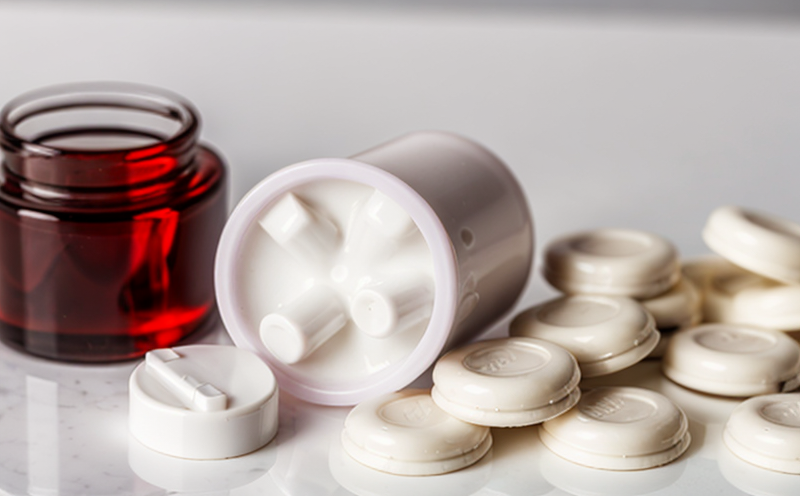USP Polymorph Characterization Testing of Solid Dosage
In the pharmaceutical industry, polymorphism plays a critical role in determining the stability and efficacy of solid dosage forms. The United States Pharmacopeia (USP) provides comprehensive guidelines for ensuring drug product quality and safety through various testing methods. One such method is Polymorph Characterization Testing of Solid Dosage Forms, which aims to identify different crystalline forms or polymorphic variations within a single substance.
The importance of this service cannot be overstated because the physical properties of these polymorphs can vary significantly, leading to differences in solubility, bioavailability, and overall performance. This testing is crucial for compliance with regulatory standards like USP 784 and EMA guidelines. By characterizing the polymorphic forms, pharmaceutical companies can make informed decisions about the formulation and manufacturing process of their products.
Our laboratory uses advanced analytical techniques such as X-ray Powder Diffraction (XRPD), Differential Scanning Calorimetry (DSC), and Infrared Spectroscopy to accurately determine the polymorphic forms present in a solid dosage form. These methods provide detailed information about crystal structure, thermal behavior, and molecular interactions that help in understanding how different polymorphs behave under various conditions.
The process begins with meticulous sample preparation tailored specifically for each client's needs. Samples are thoroughly analyzed using high-resolution instruments capable of detecting even subtle differences between polymorphic forms. Once the data is collected, our experienced team interprets it to provide comprehensive reports outlining findings and recommendations based on USP guidelines.
Understanding how different polymorphs affect drug behavior allows manufacturers to optimize formulation processes for improved quality control. For instance, knowing which polymorph has better dissolution characteristics helps in designing more effective delivery systems. Additionally, understanding stability issues due to specific polymorphic forms enables companies to implement necessary precautions during storage and handling.
Our commitment extends beyond just providing test results; we also offer support throughout the entire lifecycle of your product development journey. From initial concept stages through final approval processes, our experts are available to assist with any questions or challenges you may encounter along the way.
Applied Standards
| Standard | Description |
|---|---|
| USP 784 - Polymorphs of Pharmaceutical Products | This standard provides guidelines for identifying and controlling polymorphic forms in pharmaceutical products. It includes procedures for detecting, characterizing, and quantifying these variations. |
| ISO/IEC 17025:2017 | This international standard specifies general requirements for the competence of testing and calibration laboratories. Compliance ensures that our laboratory maintains high standards of accuracy and reliability in all its operations. |
Eurolab Advantages
- Expertise in USP-compliant testing methods
- State-of-the-art analytical instrumentation for precise measurements
- Comprehensive reports tailored to individual client requirements
- Long-standing reputation for reliability and accuracy
- Dedicated support team available during product development lifecycle
Environmental and Sustainability Contributions
Incorporating sustainability into our daily operations is an integral part of Eurolab’s philosophy. By adhering strictly to USP standards, we minimize waste generation while ensuring accurate results. Our commitment extends further by investing in energy-efficient equipment and practices that reduce environmental impact.
- Use of eco-friendly reagents
- Energy-efficient laboratory equipment
- Recycling programs for hazardous materials
- Training staff on sustainable laboratory practices





